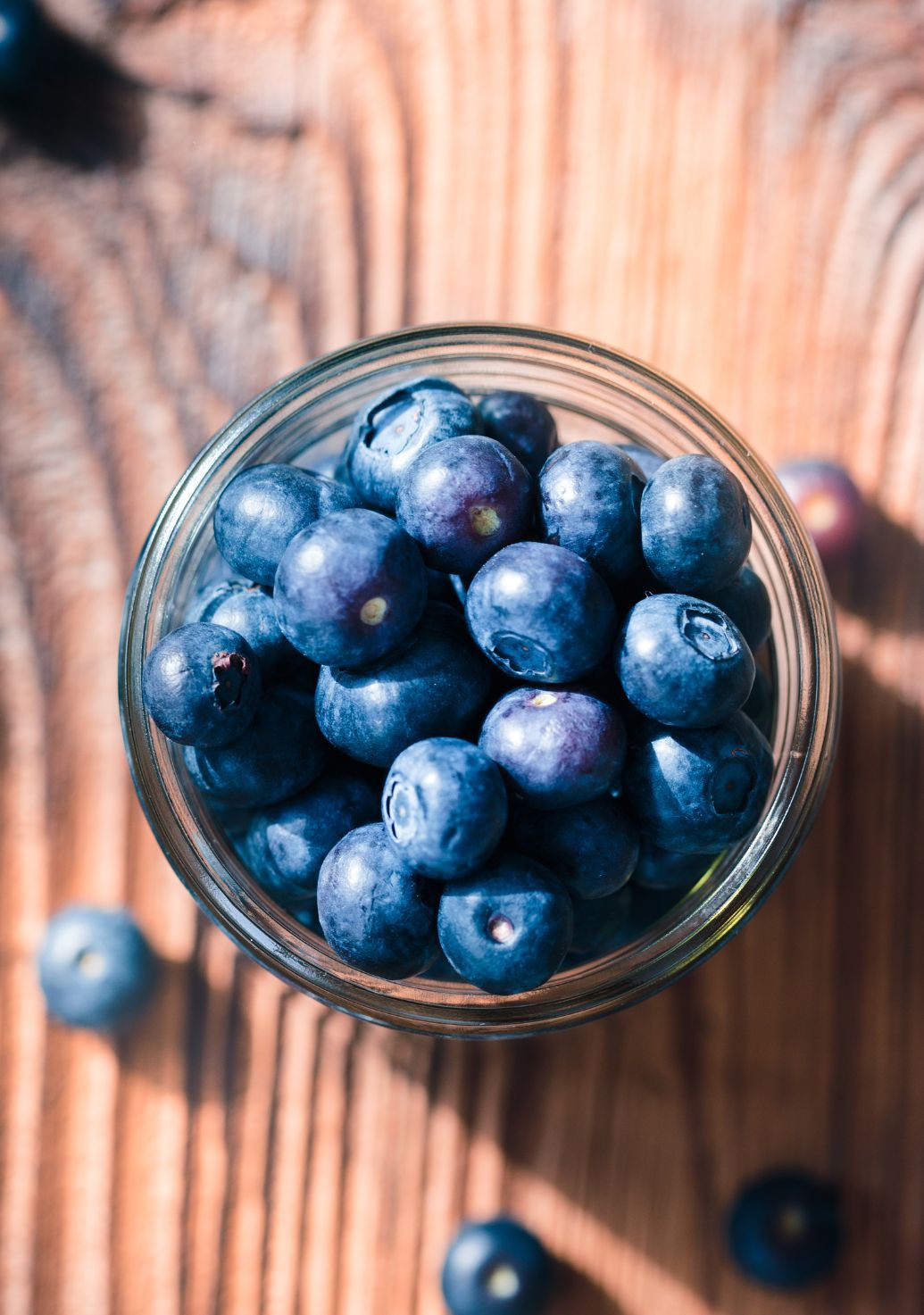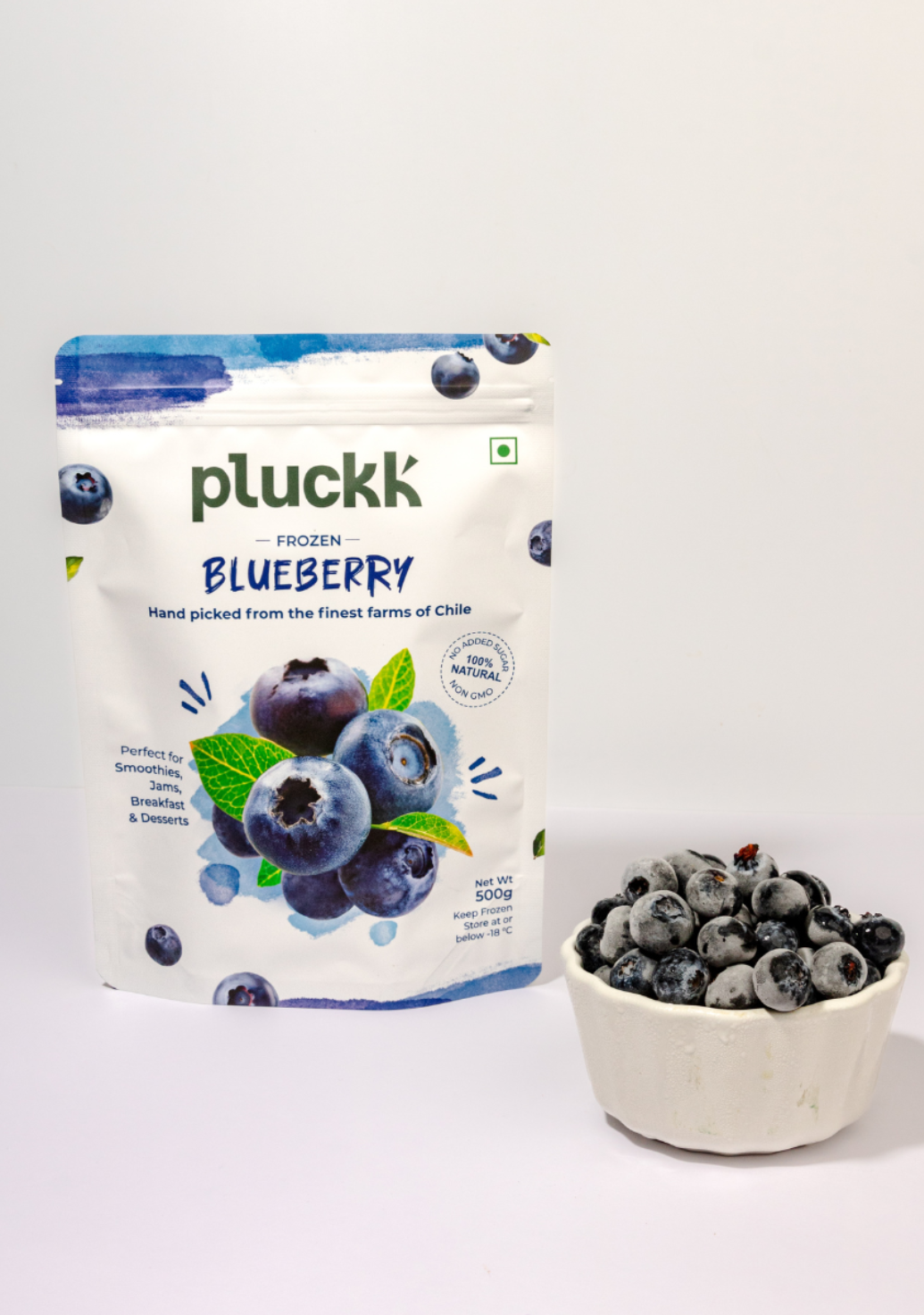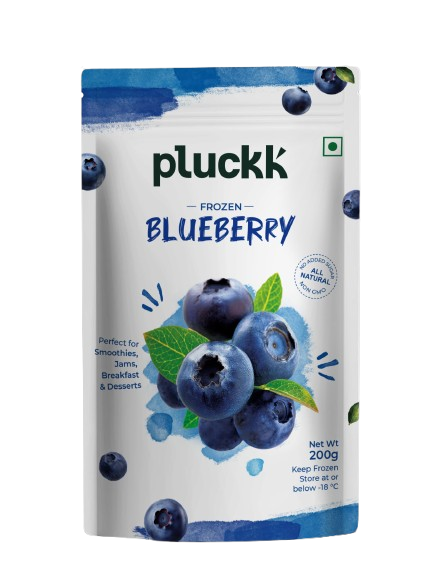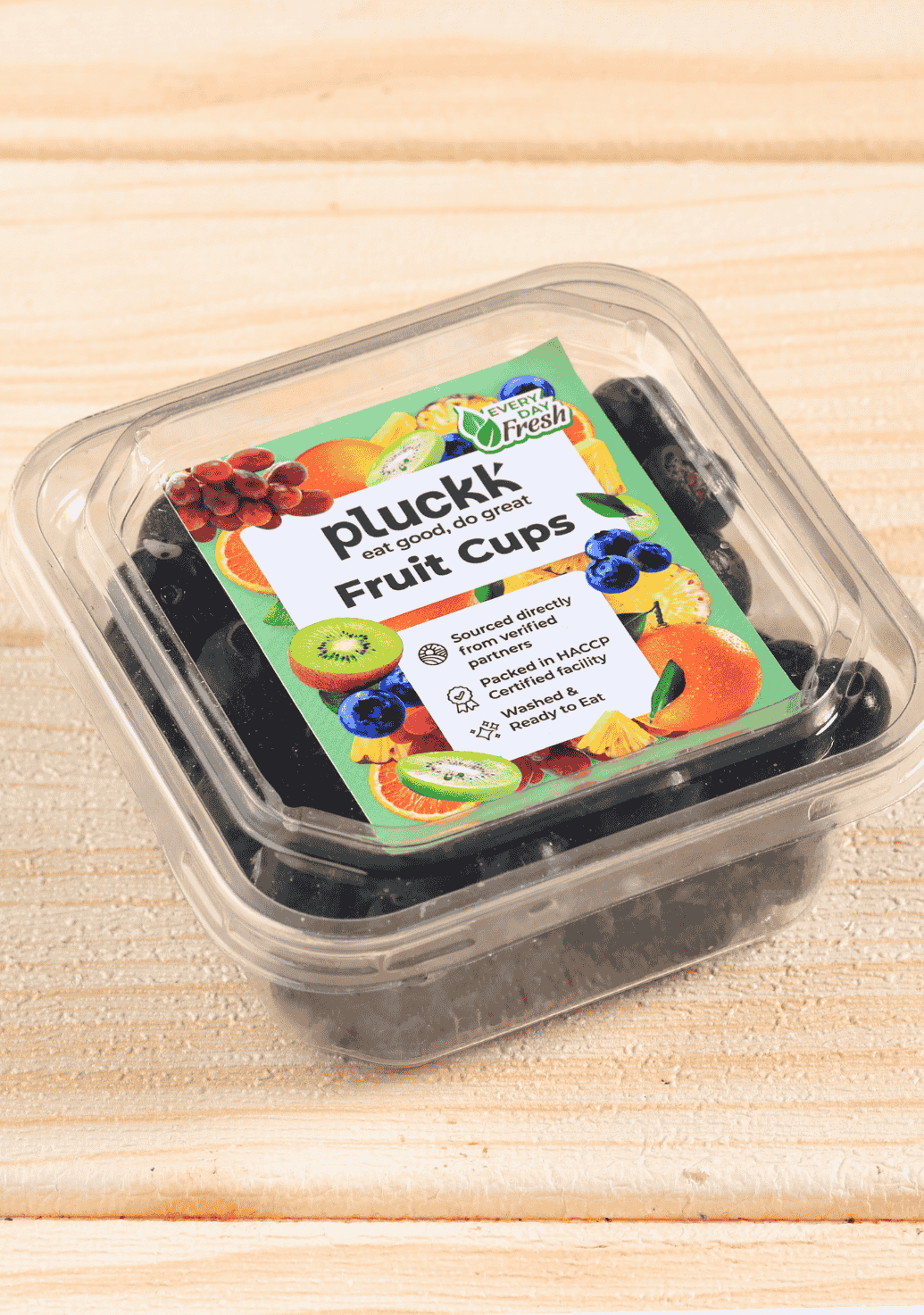
For a better and faster shopping experience, download app
Unkown
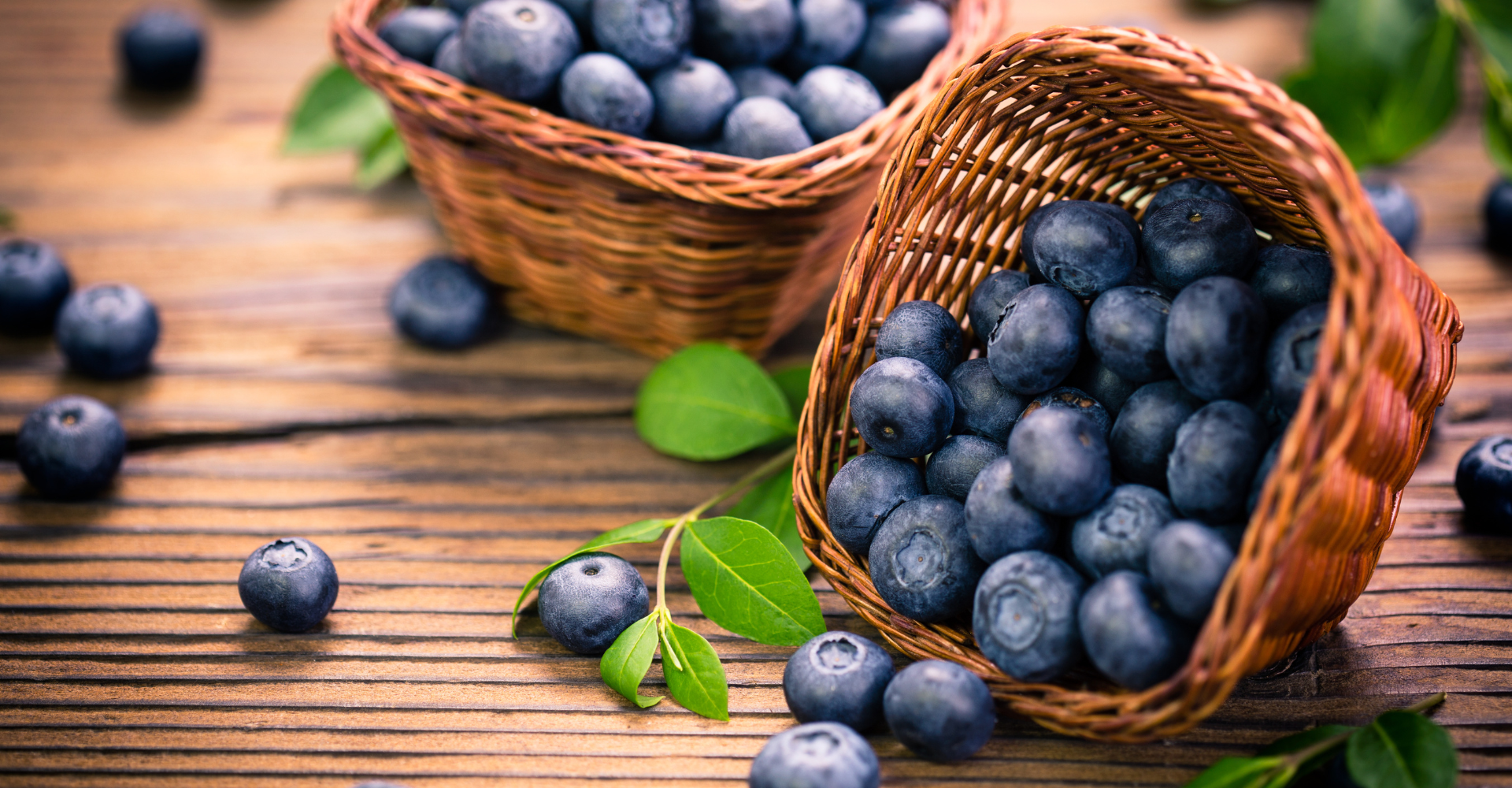
Blueberries Benefits: 7 Proven Ways They Boost Your Health
Written by: Aayushi Lakhapati
Chief Nutritionist
Introduction
Blueberries are one of the few fruits native to North America—and they pack more antioxidants than nearly any food on the planet. Small in size, but big in benefits, these indigo berries are among the most powerful superfoods you can eat.
In addition to their sweet, tangy flavor and visual appeal, blueberries are rich in flavonoids, vitamins, fiber, and phytochemicals that can help prevent chronic illness, slow aging, and improve multiple aspects of your health.
In this post, we break down the 7 key benefits of blueberries, including:
- Heart Health
- Brain Function
- Digestive Support
- Blood Sugar Control
- Antioxidant Protection
- Immune Defense
- Cancer Risk Reduction
Let’s explore how this tiny fruit can make a huge impact.
1. Heart Health
Blueberries support your cardiovascular system through a combination of bioactive compounds, particularly anthocyanins, which help improve blood vessel function and reduce oxidative stress.
These compounds increase nitric oxide levels, relaxing arteries and lowering blood pressure. They also reduce LDL ("bad") cholesterol oxidation and inflammation in arterial walls.
A 2019 study published in The American Journal of Clinical Nutrition found that eating 1 cup of blueberries daily for 6 months improved blood vessel function and reduced cardiovascular disease risk by 12% in people with metabolic syndrome.
Regular intake may reduce heart attack risk and support long-term cardiovascular health—especially valuable for those over 40.
2. Boost Brain Health
Cognitive decline doesn’t have to be inevitable. Blueberries have been shown to enhance memory, focus, and protect against age-related mental decline.
Anthocyanins cross the blood-brain barrier and interact with brain signaling pathways to enhance communication between neurons and reduce brain inflammation.
A 2023 meta-analysis in Frontiers in Nutrition concluded that blueberry consumption improves cognitive performance, especially in older adults. One study showed enhanced memory recall in just 12 weeks of daily intake.
Eating blueberries regularly may help sharpen focus, reduce "brain fog," and protect against Alzheimer’s and dementia.
3. Aid Digestive Health
Blueberries don’t just nourish you—they feed your gut microbes too. Their fiber and polyphenol content support a healthy microbiome.
The soluble fiber in blueberries acts as a prebiotic, feeding beneficial bacteria and promoting regular bowel movements. Polyphenols further enhance microbial diversity.
A 2022 study in Nutrients found that blueberry extract increased levels of Bifidobacterium and Lactobacillus, two beneficial gut species, in just four weeks.
Better digestion, reduced bloating, and improved nutrient absorption with as little as half a cup daily.
4. Help Regulate Blood Sugar
Despite being sweet, blueberries have a low glycemic index and are a smart choice for diabetics and those watching their blood sugar.
Blueberry polyphenols improve insulin sensitivity and reduce the post-meal glucose spike by slowing carbohydrate breakdown.
A 2021 study in the Journal of Nutrition found that overweight individuals who consumed 150 grams of blueberries per day had significantly improved insulin sensitivity after six weeks.
Regular consumption can help stabilize energy levels, manage cravings, and reduce the risk of developing Type 2 diabetes.
5. Antioxidant Powerhouses
Ranked among the highest in the ORAC (Oxygen Radical Absorbance Capacity) scale, blueberries help combat oxidative stress at the cellular level.
Blueberries contain dozens of antioxidants including anthocyanins, quercetin, and vitamin C that neutralize free radicals and reduce inflammation.
Studies published in Advances in Nutrition show that a diet rich in high-ORAC foods like blueberries slows aging and protects against DNA damage.
This translates to better skin, slower aging, and protection against degenerative diseases.
6.Support Your Immune System
Your immune system thrives on a steady supply of antioxidants, vitamins, and anti-inflammatory compounds—all of which are abundant in blueberries.
Blueberries contain vitamin C, vitamin K, and zinc, as well as anti-inflammatory compounds that reduce the burden on your immune system and support white blood cell activity.
A 2020 study from Frontiers in Immunology found that polyphenol-rich diets, including blueberries, enhanced immune cell response and helped the body better resist viral infections.
More resilience against colds, flu, and chronic inflammatory conditions.
7. May Reduce Cancer Risk
Emerging research points to blueberries as powerful cancer-fighting foods.
Blueberries contain pterostilbene, ellagic acid, and anthocyanins, which inhibit cancer cell growth and induce apoptosis (cell death) in abnormal cells.
A 2021 review in the Journal of Agricultural and Food Chemistry highlighted blueberries' role in reducing risk of colon, breast, and prostate cancers by interfering with tumor growth pathways.
While not a replacement for medical treatment, regular intake may reduce cancer risk and support a more resilient immune environment.
How to Maximize Blueberry Benefits
Blueberries are versatile, delicious, and easy to work into your diet. Here’s how to get the most from them:
Best Ways to Eat:
- Fresh or frozen (nutrient content is comparable)
- In smoothies, oatmeal, or yogurt
- As a snack, salad topping, or baked into healthy muffins
Buying & Storage Tips:
- Choose organic if possible (to reduce pesticide exposure)
- Store fresh berries in the fridge and rinse only before eating
- Freeze extras in a single layer on a tray, then transfer to bags
Daily Recommended Intake:
- 1/2 to 1 cup per day is ideal for most health benefits
3 Easy Blueberry Recipes for Health
Blueberry Chia Smoothie
Blend 1/2 cup blueberries, 1 banana, 1 tbsp chia seeds, 1/2 cup Greek yogurt, and almond milk. Great for energy and digestion.
Antioxidant Oat Bowl
Top warm oats with blueberries, cinnamon, flaxseeds, and a drizzle of honey.
Blueberry Spinach Salad
Mix fresh spinach, blueberries, walnuts, feta, and a light balsamic vinaigrette. Packed with brain and heart-boosting nutrients.
FAQ
Q: Are blueberries safe for diabetics? A: Yes! Blueberries have a low glycemic index and help improve insulin sensitivity, making them a smart choice for blood sugar control.
Q: Is there a difference between wild and cultivated blueberries? A: Wild blueberries tend to have higher antioxidant content but both are highly nutritious and beneficial.
Q: Can I eat too many blueberries? A: While they're very healthy, moderation is key. 1 to 1.5 cups per day is typically sufficient to gain full benefits.
Conclusion
Blueberries may be small, but their health benefits are massive. From heart health and brain function to immunity, digestion, and even cancer prevention, science confirms that adding blueberries to your diet is a smart, easy win.
With just a handful a day, you can fortify your body against chronic illness, sharpen your mind, and support long-term vitality.
Add a handful of blueberries to your diet today and reap these science-backed rewards!









